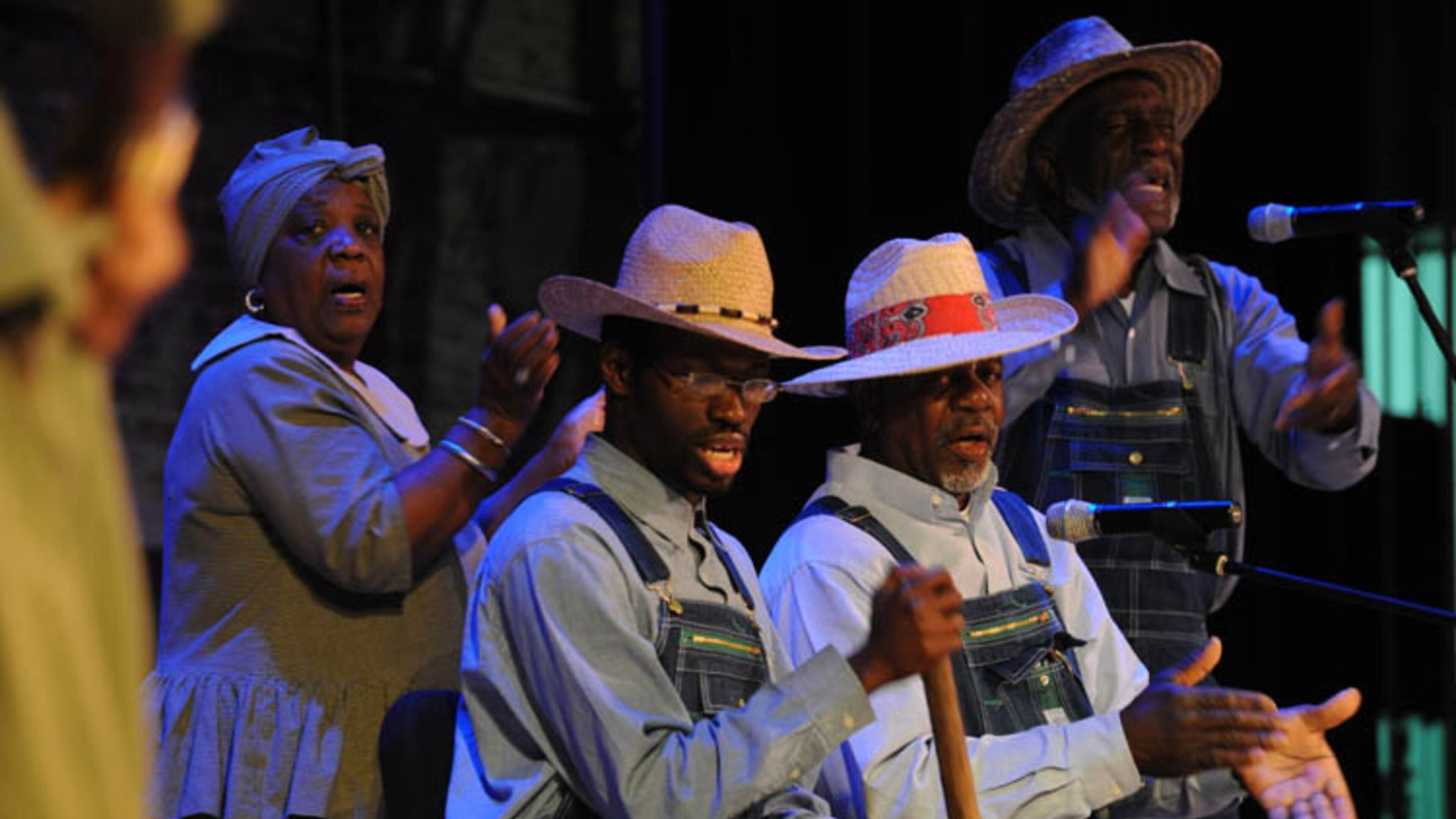McIntosh County Shouters bring slave songs to life

The ring-shout songs that will resound in Atlanta this weekend are older than Georgia.
They come from an African-American ritual of music and movement, maintained by a McIntosh County community mythologically descended from seven sisters.
The McIntosh County Shouters will perform the free show Saturday, Feb. 28, at the Hillside International Truth Center in southwest Atlanta.
In honor of Black History Month, the Shouters, from southeast Georgia, will offer a glimpse of a tradition that has survived from the days of slavery to the present.
A “shout” is a call-and-response song, set to the syncopated beat of hand-claps and the pounding of a wooden stick on the floor by a “stick-man.” Participants move in a counter-clockwise shuffle around the center of the room, and it is this movement to which the word “shout” refers. (There is boisterous singing, but no shouting.)
Folklorists believed the ring-shout had died off until they discovered in 1980 that the Mt. Calvary Baptist Church, in the McIntosh community called Bolden (or Briar Patch), kept the tradition alive. Every New Year’s Eve church members would hold a “Watch Night,” and sing shout songs all night long. Morning would be heralded with “Yonder Come Day.”
Members of that group later began performing in other contexts, at the Sea Island festival and at the Kennedy Center in Washington D.C.
“We’ve been shouting as long as I can remember,” said Carletha Sullivan, 73, the senior member of the group. Her grandson, stick-man Brenton Jordan, 28, is one of the youngest members, and he is the emblem of the possible future of the ring-shout.
When he was a toddler, Jordan frequently stayed at home with his great-grandmother, Oneitha Ellison, while his mother and grandmother were working. Along with the Itsy Bitsy Spider and Little Sally Walker, Ellison would teach Jordan and his cousins shout songs. The kids would copy the footwork of their “aunties,” and shuffle around the pot-bellied stove in the middle of the living room.
Jordan is a fan of Afro-pop and a student of the connections between African and American musical traditions. He has tracked the rhythms of the shout to Jamaica, Haiti, Panama and Cuba. Elders worry that the ring-shout will die out with the passing of such forefathers as Lawrence McKiver, who died two years ago at age 97. But Jordan sees an American audience hungry for such primary evidence of African culture in the new world.
“I led my very first shout song I was nine years old, ‘John on the Island,’ one of the songs I lead now,” said Jordan. “I sound like Lawrence when I sing it.”
Folklorist Art Rosenbaum documented the shouters in the 1998 book “Shout Because You’re Free,” and recorded their songs for Folkways records.
He said the Mt. Calvary community would sometimes hold all-night shouts in private homes in the area, and the rhythm of the stomping feet would occasionally knock the small cabins off their stone footings. “The next day the people would come back and help put the house back on the stones.”


